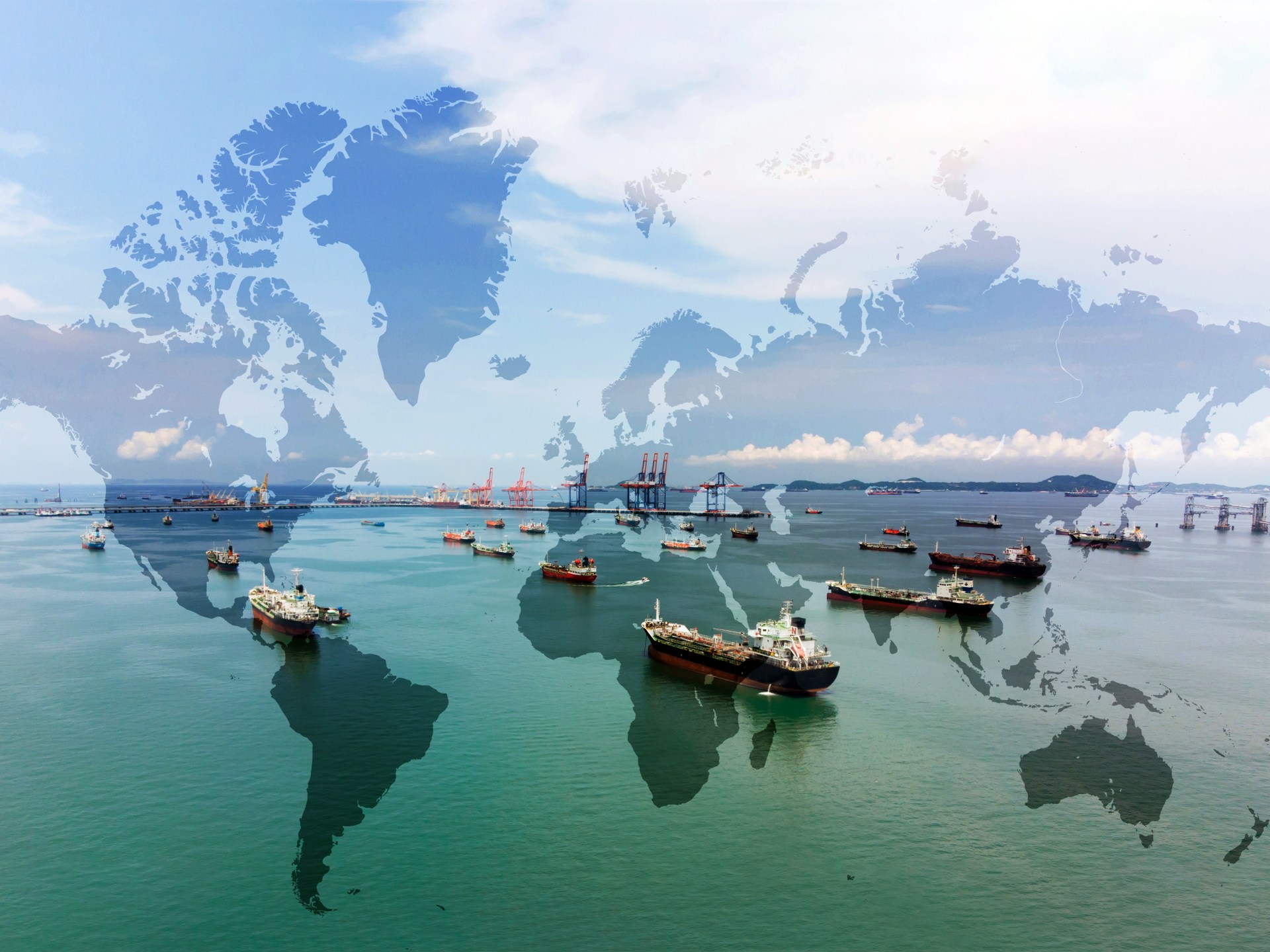Russia has used a number of tankers to bypass Western sanctions, but the United States is tightening its grip on it (Shutterstock)
Part of what was known as the "shadow fleet" that Russia uses to transport its oil has stopped under the weight of US sanctions, an indication that the stricter Western measures are beginning to have tangible effects on Moscow, according to Bloomberg.
Impact of sanctions
About half of the 50 tankers that the US Treasury began imposing sanctions on last October 10 have failed to load shipments since they were included on the list, according to Bloomberg.
The most recent target was the tanker NS Leader, affiliated with the Russian company Sovcomflot. It withdrew from completing a voyage off the coast of Portugal when the United States included its owner among the sanctions.
The G7 imposed a ceiling on the price of a barrel of Russian oil at $60 per barrel in December 2022, the aim of which was to maintain the flow of Russian oil while depriving the Kremlin of revenues.
The group followed the procedure by imposing maximum limits on the prices of refined products two months later, but the sanctions regime came under severe criticism last year when Moscow found alternative solutions, and some Western companies continued to transport oil from it, and this matter was not supposed to do once the barrels were traded above the maximum. Specified.
But the United States responded by intensifying sanctions and investigating possible violations of the price limit, which prompted a number of Greek tanker owners to stop transporting these cargoes.
The result has been inflated shipping costs and Russian oil trading at deeper discounts to international standards, according to organizations including the International Energy Agency.
Russian Energy Minister Alexander Novak said that oil prices in the country have become cheaper.
The full impact is not yet clear, as the US Treasury imposed its sanctions in batches.
The United States has imposed sanctions on 50 tankers since early October, according to Bloomberg.
Last December, Bloomberg indicated in a report that the West is seeking to thwart Russia’s solutions to circumvent the sanctions, while Greece - the largest country that owns oil tankers in the world - reported that it is unable to prevent secret oil shipping activities off its coast.
Greek ships are estimated to have transported 20% of all Russian oil shipments from the beginning of 2023 to early December of the same year, and nearly a third of its exports of the main Urals crude, according to shipping data.
The shadow fleet transported about 45% of Russian oil in 2023, according to previous estimates by Bloomberg.
Local and shadow fleet owners collectively transported more than 70% of Russian oil shipments in the first nine months of 2023, allowing Moscow to maintain control over its exports and gradually increase prices.
Review and circulate
Russia's oil price cap under the sanctions regime is due to be reviewed this month, which will require shipowners and insurers to request more details about how much traders actually pay for the goods, and the shipping costs.
Insurers have published circulars in recent weeks stating that their cover will not be valid unless they receive certificates of compliance with the price cap which includes itemized additional costs.
At the time of writing the report, the price of a barrel of Urals crude for the nearest delivery rose 0.33% to $73.02, according to Trading Economics data, while the price of a barrel of Brent crude rose 1.06% to $82.87 per barrel, and US West Texas Intermediate crude rose 1.13% to $77.78 per barrel. According to CNBC data.
This came amid fears that tension in the Middle East would lead to disruption of supplies, but uncertainty about the pace of possible US interest rate cuts and the impact on fuel demand limited these gains.
In a related context, Secretary-General of the Organization of the Petroleum Exporting Countries (OPEC), Haitham Al-Ghais, said on Tuesday that the oil market is in good and fairly stable condition, adding that he sees a strong global economy this year that will have positive repercussions on demand, as quoted by Reuters.
Source: Al Jazeera + agencies

